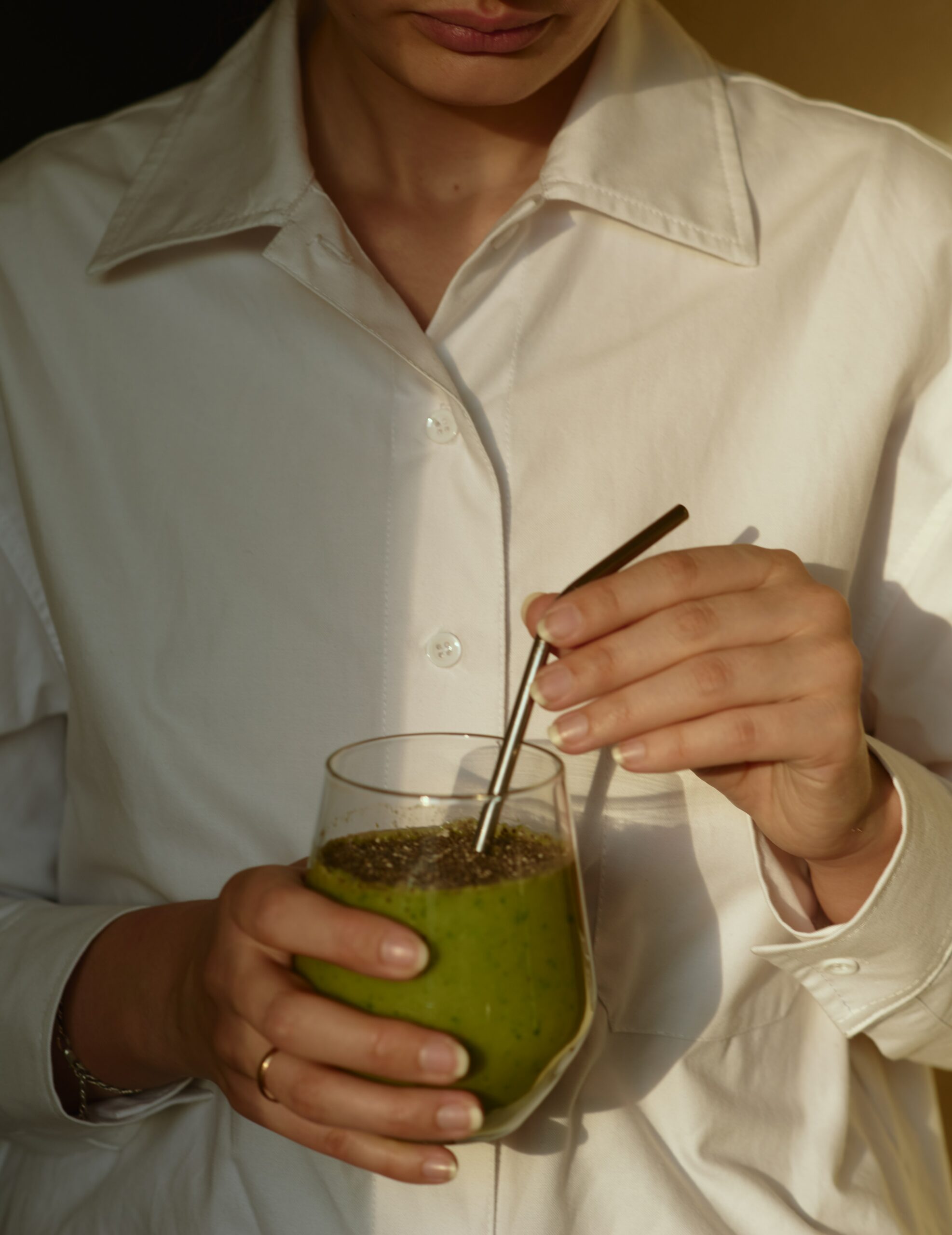It’s everywhere. “This new year’s resolution: Look hotter than ever and make your ex jealous!” You’re just trying to get through the checkout line with your groceries, but the tabloids blast you with their all-caps, bright red shouts.
“Summer’s coming — start NOW to lose those holiday pounds before bikini season!” You normally try to ignore these annoying phrases, but somehow you find yourself curiously drawn to the racks of magazines. “Exercises to get toned abs at home in just 10 minutes a day!” You start to wonder if you’re doing enough. “New miracle diet sheds weight faster than EVER — find out how!”
Suddenly you regret that doughnut you had for breakfast this morning even though you promised you’d start your diet this month. You recall how bloated you felt after eating fast food for dinner last night. And you only exercised once this week — despite your best intentions, getting out of bed in the mornings has been harder than you expected.
Before you know it, you’re turning around and stepping out of line, beginning the walk of shame to return the box of Cocoa Puffs and the carton of Ben & Jerry’s you were about to buy. Anything is possible for 30 days, right? You renew your determination to start your diet TODAY as you resolutely march back into line with your basket of celery and spinach. Hooray?
Do you relate with this scenario? You’re not alone.
If you’re wondering if I followed you to Target because this is an EXACT play-by-play of what happened to you the other day (don’t worry, I didn’t) — well, you’re not alone.
Diet culture plagues us all — especially women. As the media has emphasized the importance of female physical beauty and glorified sex appeal, it has also whispered the false message that our worth is intrinsically tied to our appearance. We hold ourselves to standards of perfection which no one can attain, and then punish ourselves for our “failure,” always looking in the mirror through a haze of disappointment.
The problem is that diet culture is rooted in shame and fear.
We are constantly told that we’re not good enough, thin enough, pretty enough — and then we’re sold products which are marketed to be quick fixes to the “problems” we’re told we have.
“Low-fat” meals, “low-carb” snack foods, “sugar free” drinks… What are we supposed to do with all the information out there? How do we know which marketing tactic to believe? How are we supposed to actually BE healthy? Is this cycle really all there is — eating “normally” for a while, gaining weight, feeling terrible, and then going on a demanding diet that helps us shed pounds (but makes us cranky and irritable at the same time)… and then inevitably starting all over again?
The reality is, you were made for SO much more. Food was intended to bring joy — to nourish our bodies, to give us energy, and to help us find balance. Food is medicine. It can heal us, refresh us, and bring us life. The lie of today’s polluted industry is that things like 100-calorie “meal replacement” bars and coffee are good enough to sustain us in the long-term.
I’m going to let you in on a secret…
Fad diets aren’t popular unless they don’t work.
Let me say that again: Fad diets aren’t popular unless they don’t work. Why? Because if they really worked in the long term, then everyone would accomplish their goals and wouldn’t need the diets ever again. But instead programs like Weight Watchers and SlimFast are designed to keep you dependent on their products and services — to keep you in a cycle of failure and coming back for more.
Because here’s the thing — there’s nothing inherently exciting or marketable about simply eating real, nutrient-dense food in the right amounts for your body.
Our modern culture prioritizes quick fixes and instant gratification — we want to see results, yesterday! Whether it’s Paleo, Whole30, Atkins, Low-Fat, Keto… as long as there are easy-to-follow rules and directions, and promises of speedy results, we’re in! (And I’m speaking as someone who has fallen for the marketing myself!)
But what about when we’re tired of the rules? What happens when we inevitably grow weary of the meticulous counting, restriction, and strict parameters? Fatigue eventually sets in, and understandably, we just want to enjoy a juicy burger or a bowl of ice cream. The craving often gives way to a guilt-riddled indulgence, and because of the black-and-white all-or-nothing mentality diet culture promotes, we think we’ve failed and all is wasted. So then we give up, and vow to “jump back on the wagon” with another diet, another day.
But what if there’s another way?
Freedom comes when we’re able to reject diet culture and instead adopt a sustainable healthy lifestyle. When we are able to get into the habit of eating well 80% of the time, we can afford to let ourselves enjoy a small indulgence without feeling like our efforts have been in vain. Properly fueling our bodies throughout the day not only helps us to feel better, but it also reduces cravings for the fake stuff anyway.
And this doesn’t mean that you’re doomed to a depressing future of simply drinking celery juice and eating raw spinach forever, OR that you’ll now be struggling financially to make ends meet. Eating healthy, when done right, is delicious AND affordable. My husband and I make most of our meals at home, and we love it! Cooking is something we get to do and enjoy together, and we save a lot of money by doing so.
If this new way of relating to and understanding food appeals to you and you want to know where to start, here is a list of first steps you can take today!
1. Clean out your fridge and pantry.
If it’s there, you’ll probably eat it! Now is a great time to give away or get rid of food that won’t serve you — like those Oreos or frozen hot pockets. Here’s a good rule of thumb — if a packaged food has an ingredients list longer than your favorite novel, full of words you can’t even pronounce, it’s likely not going to benefit your body. Start with a fresh canvas!
2. Shop mindfully.
When it’s time to restock your fridge and pantry, prioritize the perishable and focus on the perimeter of the grocery store. (That’s where they keep the produce, dairy, eggs, and meat!) I love to go to local farmer’s markets when I can, and buy from brands I trust. Keep your eye on the ingredients lists and try to avoid foods made with seed oils or high levels of added sugars. Make it a goal that most of your diet comes from real, whole, unprocessed foods. By simply eating more quality animal proteins, whole fruits, roots, vegetables, healthy fats, and less processed foods, you’ll start to feel a huge difference!
3. Analyze your nutrient intake.
I used to majorly undereat — I went through a period of my life that was marked by starvation, disordered eating, and calorie deprivation. I was often hungry, anxious, stressed, and filled with cravings. The problem was, I didn’t even know these patterns were super unhealthy. I thought I was just practicing “intermittent fasting” and that the keto diet would fix my problems because, well, carbs are bad, right?
Nope! Eventually I realized what an unbalanced place I was in and that it wasn’t a good thing that I was losing so much weight (and hair). I learned how much I should actually be eating, upped my calorie intake, and balanced my macros.
I’d recommend working with a qualified practitioner if you’re uncertain and need specific guidance in this area, but as a general rule of thumb, in my opinion most adult women should be eating at least 1,800 calories — BARE MINIMUM. More if you’re active, pregnant, or breastfeeding. Also, shooting for 80-100 grams of protein is a great goal that makes a huge impact on your health in pretty much every way!
4. Say “goodbye” to diet culture!
This is one of the most liberating things you can do in your health journey! Determining that your life won’t be marked by the cycle of running from one fad diet to the next is deeply empowering. I can confidently say that I won’t be going on a typical “diet” ever again! Instead, I view my choices as a sustainable, holistic lifestyle grounded in freedom and joy. I eat to fuel my body and feel good, and I enjoy what I eat. It really is possible!
5. Be kind to yourself.
So often our approach is harsh and unyielding when it comes to diet and exercise. We pursue our goals all-or-nothing, and it feels as though if we slip up once, we’ve failed. However, the more sustainable (and enjoyable) perspective to have long-term is simply that your best is enough. No one is perfect, and while discipline is important to practice, that piece of candy you indulged in the other day won’t keep you from achieving your greatest goals. Every day is a new opportunity to choose nourishment.
Did you enjoy this post? Share it with a friend who might need it, and leave a comment letting me know what you’re going to start implementing in your journey! Best of luck friend!







0 Comments